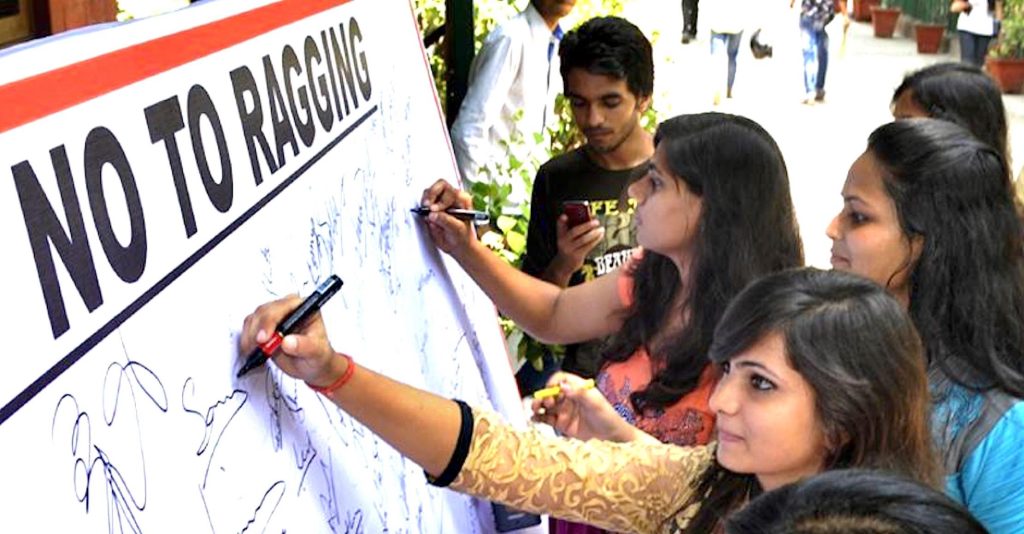Photo courtesy of Roar Media
The Rajagiriya police arrested Sathsara Nimesh and publicly humiliated him by removing his trousers. At Sabaragamuwa University, seniors tortured Charith Dilshan to death for wearing shorts. Dilshi Amshika, who was sexually abused and left distraught by the failure to achieve justice, was expelled from her tuition class by a leader of the so-called new political culture. She took her life at an early age. At a Sri Lankan university, a candle was inserted into the vagina of student Rupa Rathnasili, driving her to take her own life.
And the list goes on.
During my time in the GCE class at school, I wanted to join the cadet corps. On the appointed day, I showed up, only to be rejected for not being tall enough. Some of my classmates called me short. They were accepted and I was not.
At that time, the cadet corps annual camp was held at the Diyatalawa military base. Special train compartments were reserved for the long journey. When my friends returned, I was horrified by what they told me. Newly recruited cadets were forced to have sex with seniors in the train compartment, with the full knowledge of the teacher in charge of the corps. That teacher later became a volunteer officer during the war.
Years later, in a conversation with alumni about the ragging at a prestigious Colombo college, I learned that this culture of forced sexual abuse still exists within the cadet corps. This, too, is a form of ragging.
Forced sexual acts whether anal, vaginal, incestuous or between the thighs are criminal offenses. Yet even within institutions like the cadet corps, which are meant to uphold the law, such abuse has persisted for decades, likely since colonial times. It reflects a deep-rooted culture of oppressive sexuality in our society.
When the 1971 rebellion was crushed and we were imprisoned, the narrative of traitors and heroes had already taken hold in the political movement. JVP leader Tilvin Silva still echoes this dichotomy today.
I remember one heart breaking case: the juvenile son of a JVP leader branded a traitor was detained. His sisters were also arrested. While imprisoned the boy, educated at a prestigious Colombo school, was subjected to group sexual abuse by a mob of party loyalists until he lost consciousness – something retold among loyalists as a twisted “heroic” tale.
Desertion from the army during the civil war was rampant. A military investigation found that forced sexual abuse by superiors was the third leading cause.
While the US exposed the sexual abuse of prisoners during the Iraq war, there is rarely any news about abuse within its own forces. In Sri Lanka, abuse within ranks is often buried under silence.
A case of ragging at a renowned Colombo school involving the rugby team also surfaced. Freshmen were subjected to horrific abuse: a candle was inserted into a player’s anus, lit and he was forced to write his name with the burning candle. Rugby is considered the pride of this school. When the abuse became public, only then did the coach take action.
This type of ragging, referred to as a fire sacrifice, still exists in our universities.
A minister once boasted that 300,000 tourists would flood the country, claiming that if you walked at night you might bump into a white female tourist. He warned that a white woman merely touching a man could destroy his family. Symbolically, this story reflects the underlying sexual obsession and perversion.
Former MP Tissa Kuttiarachchi, a Rajapaksa loyalist, once used the word aubergine as a vulgar reference to women MPs. Ranasinghe Premadasa famously said that if a woman became prime minister, parliament would need to “wash the chair once a month”, yet he would preach Buddhism on national television every full moon.
It’s no secret that large scale child sexual abuse occurs in Buddhist temples. It’s an abuse our society has collectively chosen to ignore.
Ragging in universities didn’t begin with the rise of the JVP or FSP in student politics. In the 1960s, a leftist senior at Peradeniya University forced a fresher to place his saliva between a female student’s legs as a form of ragging. That same man later became Chair of Higher Education.
Today, campus politics is dominated by the JVP/NPP and their rival, the FSP. Both use ragging as a tool for violent political control. They have institutionalised it.
Actress Yashoda Wimaladharma was relentlessly ragged at Kelaniya University – an expression of sexual jealousy. A professor there told me that student unions effectively rule the university on ragging matters, preventing any real reform.
A UNICEF report titled Ragging in Sri Lanka’s Public Universities (March 2022) confirms that ragging includes verbal abuse, physical violence, drug use, assault and sexual harassment. It highlights that sexual and gender-based violence (SGBV) is closely tied to ragging.
The study found that 51% of students experienced verbal harassment, 34.3% suffered psychological violence, 23.8% endured physical abuse and 16.6% were sexually harassed due to ragging.
Among university staff 44% experienced verbal sexual harassment, 22.3% were asked for sexual favours and 19.9% experienced physical sexual violence.
Among students 21% reported verbal sexual violence and 1.5% were forcibly subjected to sex.
While many believe ragging ends after the first year, the report reveals that harassment continues as a way to establish control. Seniors maintain dominance over juniors throughout their academic lives.
Given our society’s silence around sexual abuse, it’s likely that such incidents are far more common than reported.
According to the study, sexual harassment is the most frequent form of ragging. Seniors are often preoccupied with freshmen’s body details and sexual preferences. Many are forced to strip in front of others.
In Sri Lanka’s major schools and universities, sexual harassment and sadism have become core elements of ragging. Given the populist political culture that refuses to confront it, meaningful change feels almost impossible.
It is not youth who are stupid; it is politics that is stupid.
